Hyunjae Park, a research professor of mechanical engineering, implemented the program, “Designing Disruptive Products or Process for the Underprivileged,” into his freshmen general engineering classes about eight years ago. He’s continued the program ever since.
Park said the requirements for students in his second engineering discovery class are to design a product that is easy to use, cheap to purchase or produce and does not require skill or education to use.
Park’s lecture notes stated that students began working on their projects at the beginning of this semester and recently presented them March 7.
“These types of activities help students open their eyes and realize that there are so many people that need help,” Park said. “The big hurdle is that many engineering students want to start right out with high-tech design, so I provide them the tools to think of disruptive technologies.”
Park defined disruptive tech as cheaper, easier to use and targeted to communities who companies are less likely to sell to.
Park said each of the products designed by students have importance in our world by putting things into perspective.
“All of the students’ work is related to real-life engineering issues, no matter how minor the issues are,” Park said.
Andy Jiang, a freshman in the College of Engineering, worked alongside his group members to create a water transportation device made to move 25-30 gallons of water by being rolled, which they called “Hippo Roller.” A similar product under the same name already exists.
Jiang said his group designed the product to help communities in West Pokot County, Kenya, so people no longer have to carry gallons of water on their head or shoulders.
“It comes with a built-in filtration system and hand pump to allow water to enter or exit the barrel rather than having to fill it up manually,” Jiang said.
Park said his class revolves around the “three Cs: curiosity, connections and creating value.”
“The students need to be curious about the different problems or issues they are surrounded by,” Park said. “From there, they come up with the ideas for their products and find a solution.”
Tony Weidel, a freshman in the College of Engineering, was part of a group that designed “EZ-Phrine,” an EpiPen with a retracting needle after initial usage in order to prevent improper re-usage.
Weidel said they were inspired to address the problem of rising insulin prices that some of their family members were affected by. According to their group’s project report, a syringe with epinephrine costs about $75 but is often marketed at over $700.
“Our group’s estimates projected that the new design reduces the cost of production of the injector to about 96 cents,” Weidel said.
Peter Tran, freshman in the College of Engineering, led his group in designing a smartphone app called MedFo.
“The goal of MedFo was to provide a method for lower or middle-class senior citizens, who were beginning to experience common age problems, to manage their healthcare needs independently by providing one platform for all their needs,” Tran said.
Tran said his group members were inspired by looking at the problems their own grandparents were dealing with.
“We noticed a trend of smartphone usage and did further research to discover that smartphone usage among elderly citizens was rising at a rapid rate,” Tran said.
Park said students obtain value in their projects through the dedication they have to the class.
“You have to come to the class and get your return on investment, (and) as long as you are consistent, you will satisfy yourself,” Park said.
Jiang said the class has been challenging but very rewarding.
“This project was really eye-opening,” Jiang said. “It helped allow us to be creative and find new ways to help others.”
Weidel said this project helped put into perspective the responsibility he has as an engineer.
“Things change every day, but change wouldn’t happen if no one stood up and said they wanted to change something in the first place,” Weidel said. “Sure there’s going to be other great ideas out there, but they aren’t yours.”
Correction: A previous version of this story stated that student Andy Jiang worked alongside his group members to create the “Hippo Roller,” a water transportation device. In fact, a similar product under the same name already exists. The Wire regrets this error.

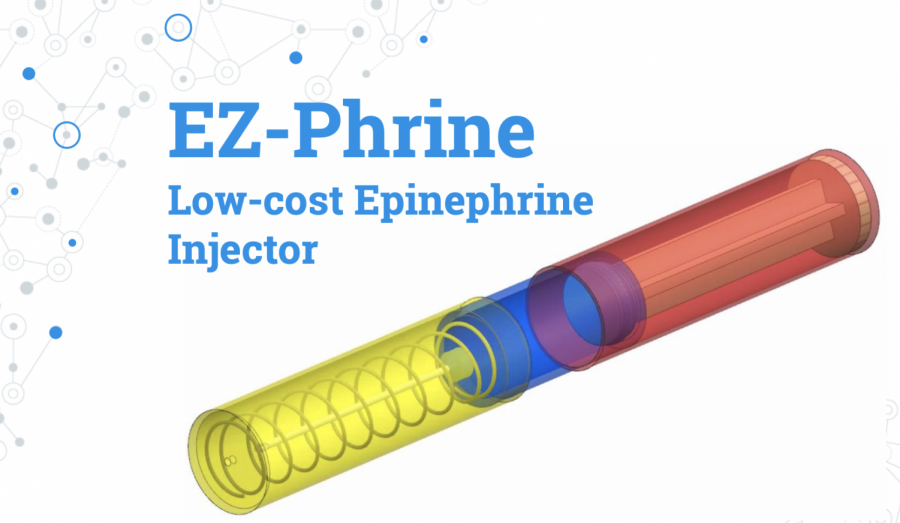
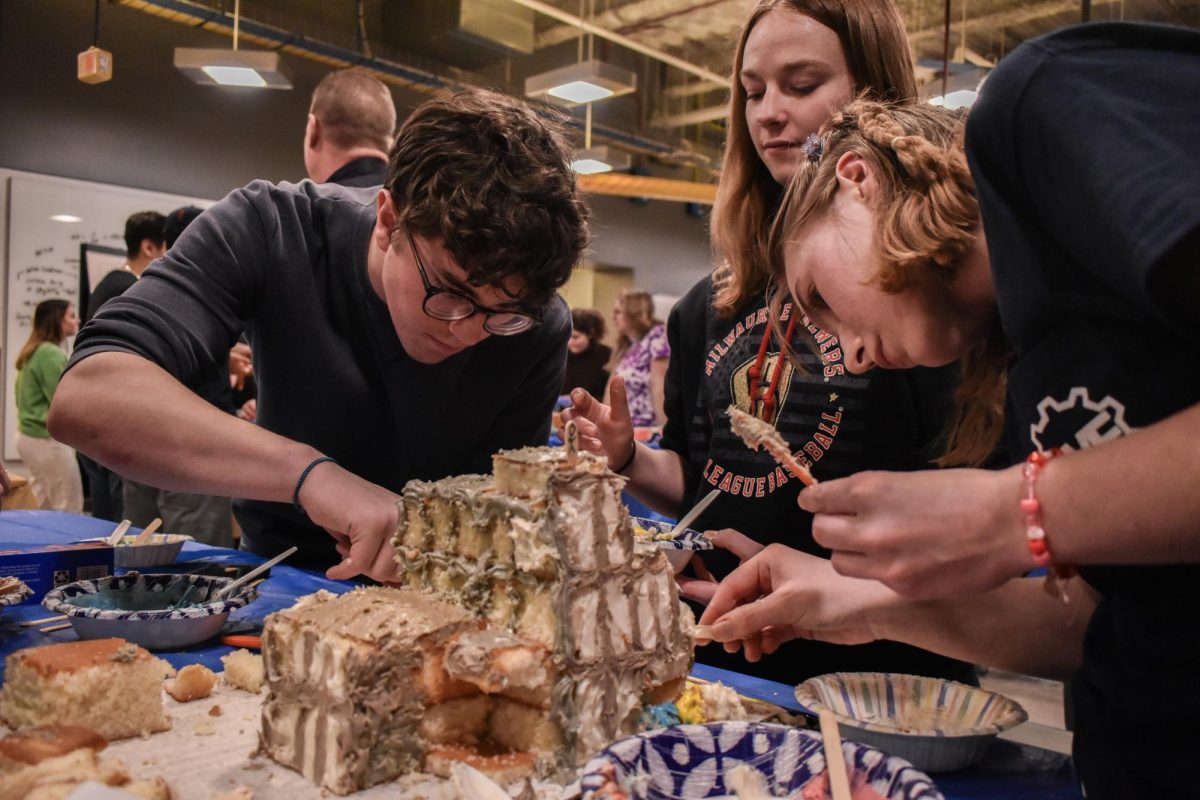
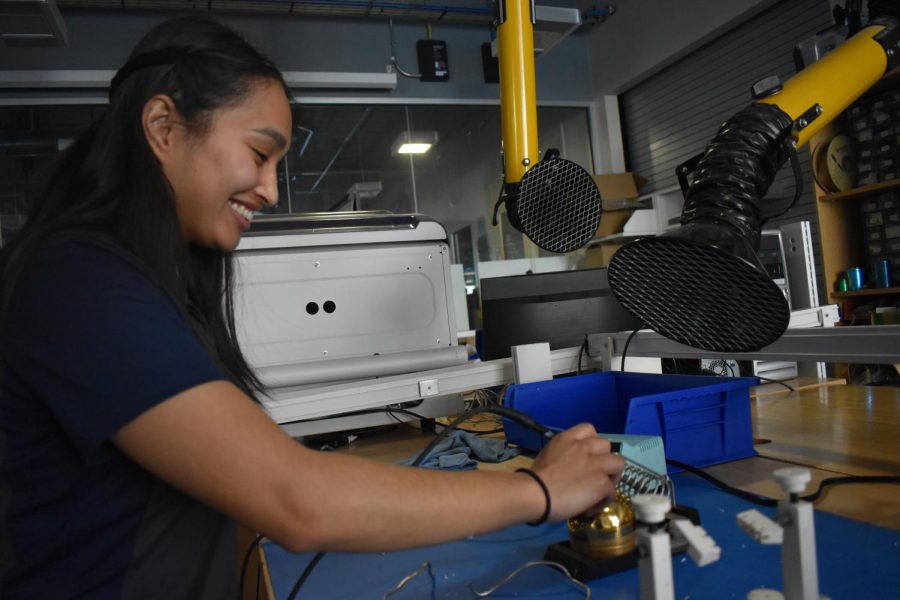
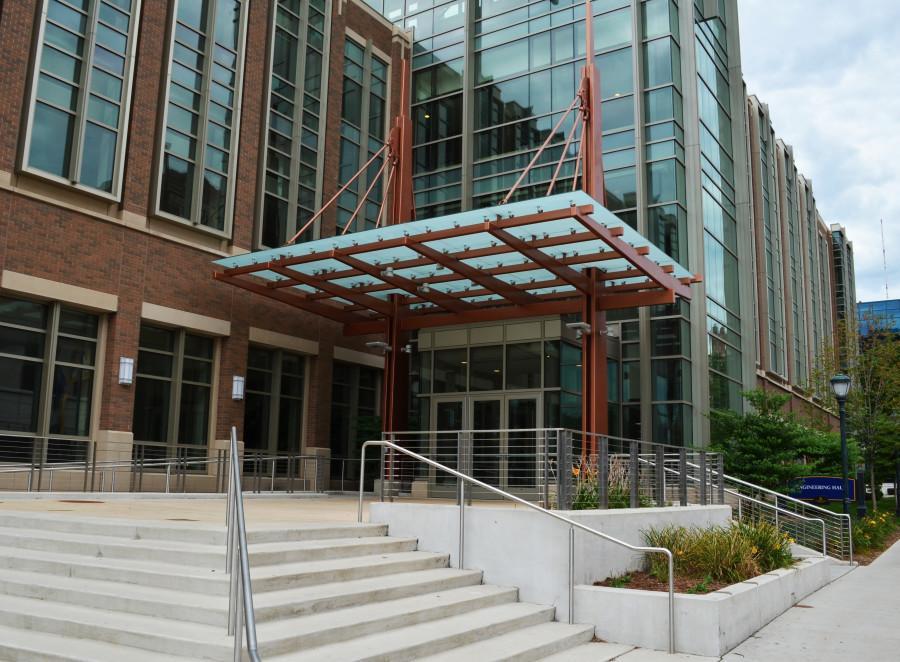
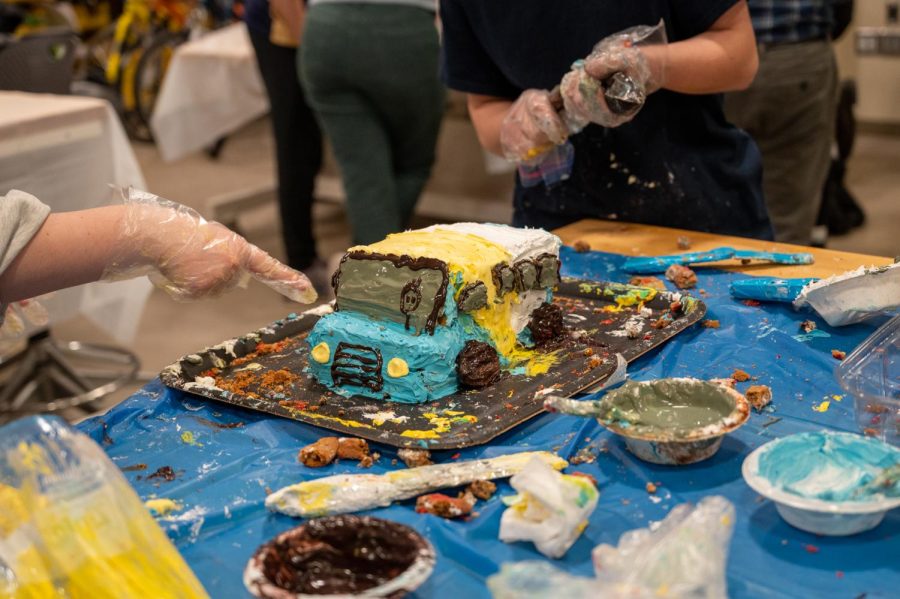
Grant Gibbs • Mar 19, 2019 at 9:55 am
Hello Joseph
An inspiring article. I just need to correct an error in the story relating to ‘Hippo Roller’.
This statement is not true:
“Andy Jiang, a freshman in the College of Engineering, worked alongside his group members to create the “Hippo Roller,” a water transportation device made to move 25-30 gallons of water by being rolled.”
It’s possible that they created an entirely new product based on the Hippo Roller design.
The Hippo Roller was first innovated by Pettie Petzer and Johan Jonker in South Africa as far back as 1991. I have been managing the project (and product) since 1993 – 26 years now.
Please visit our website: http://www.hipporoller.org to learn more.
We are happy to answer any questions you may have in this regard.
Thank you, Grant Gibbs.